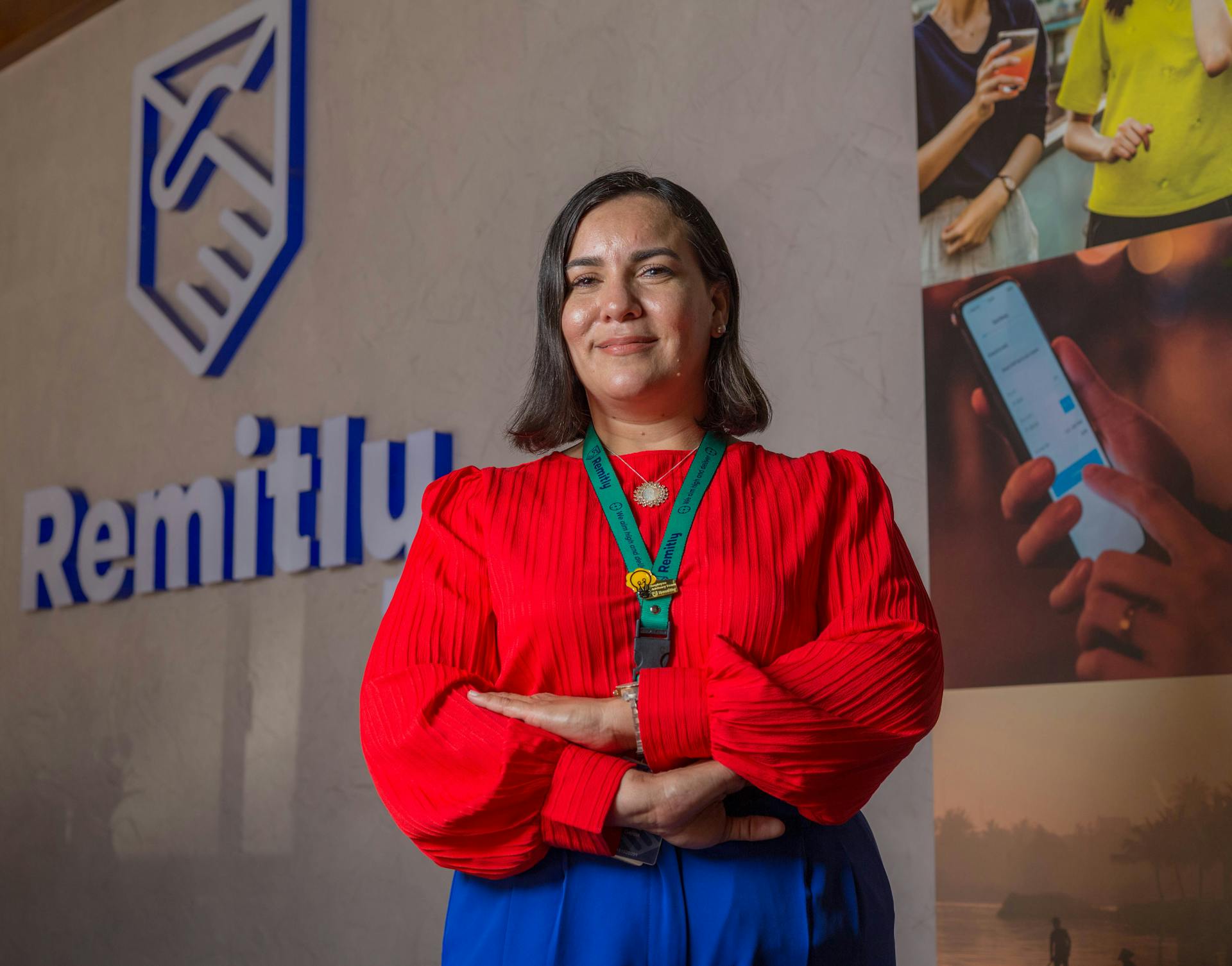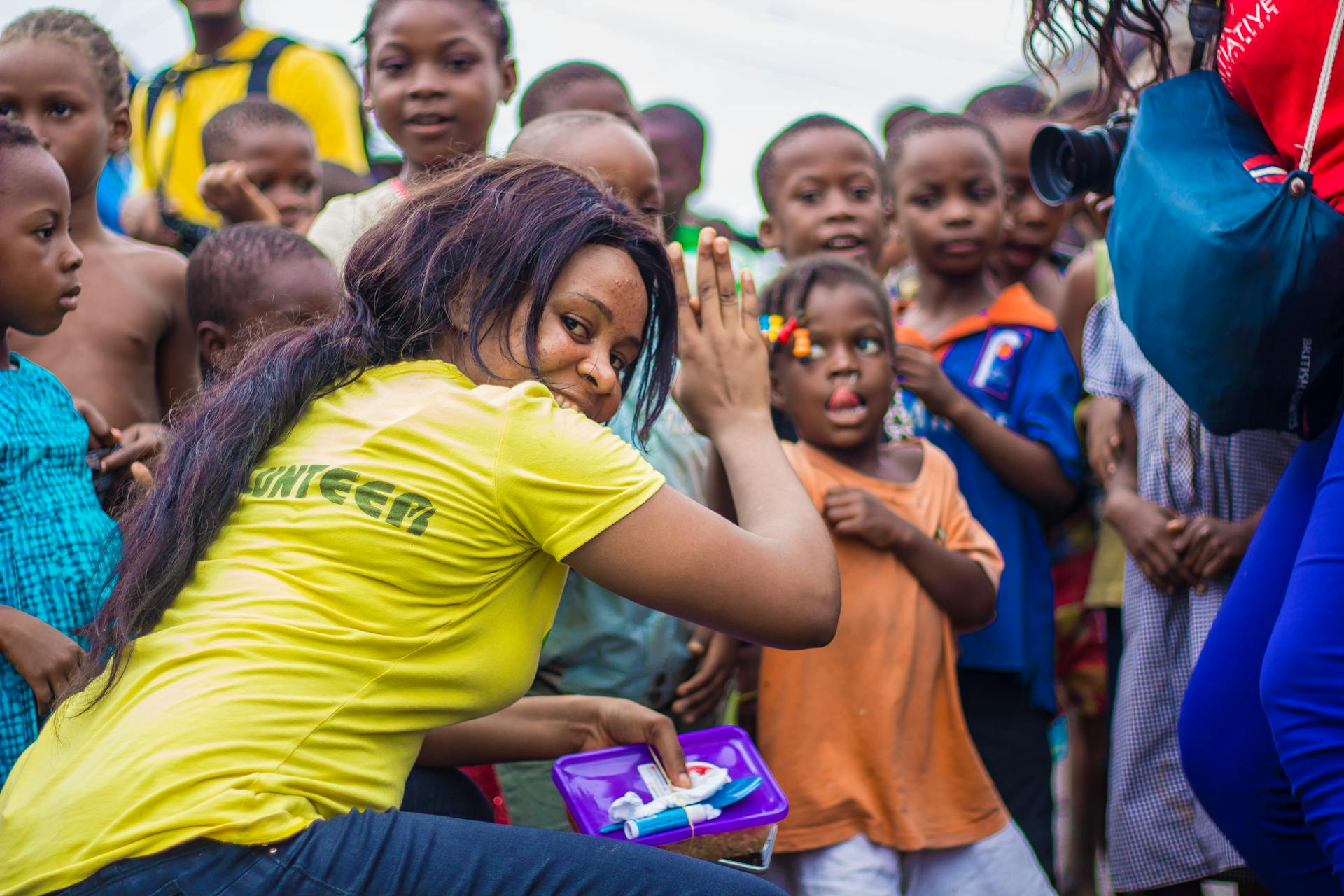
The Kashf Foundation has been a game-changer for many women and communities in Pakistan. Established in 1996, it's one of the leading microfinance institutions in the country.
With its headquarters in Lahore, the foundation has grown significantly over the years, now operating in over 140 branches across Pakistan.
The Kashf Foundation's mission is to empower women and communities through microfinance, education, and healthcare initiatives.
About Kashf Foundation
Kashf Foundation was registered in Lahore in June 1996 with a total staff of five women, including Roshaneh as a loan officer.
The initial loan amount given to clients was 4,000 PKR, roughly $80, and all borrowers were women.
It took Kashf six months to distribute its first 15 loans, which marked the beginning of the organization's growth.
Kashf's mission is to serve all with dignity by providing quality and cost-effective microfinance services to low-income households.
The foundation's goal is to alleviate poverty and enable women to become active agents of social and economic change.
On a similar theme: Hebrew Free Loan Association of Northeast Ohio
By early 2001, Kashf had a network of five branches in Lahore and a client base of 5,088 customers located in 214 centers.
Pakistan Poverty Alleviation Fund, Department for International Development, and the Agha Khan Foundation provided core funding to support Kashf's growth.
Kashf's client base grew to over 68,000 by the end of 2004, with a network of 30 branches.
Today, Kashf has enabled access to over 1 million low-income individuals to micro-health insurance and has distributed over $496 million funds to its clients.
Explore further: MicroFinance Institutions Network
Services
Kashf Foundation offers a range of services to support women's economic empowerment in Pakistan.
Their microfinance services provide small loans to women entrepreneurs, enabling them to start or expand their businesses.
These loans are designed to be flexible and tailored to the individual needs of each borrower.
Kashf Foundation also offers training and capacity-building programs to help women develop the skills they need to succeed in business.
Their financial literacy programs educate women on how to manage their finances effectively and make informed decisions about their money.
By providing these services, Kashf Foundation has helped thousands of women in Pakistan to improve their economic status and become financially independent.
Innovation and Partnerships
Kashf Foundation was the first microfinance institution to demonstrate a women-centric model in Pakistan, developing women-friendly microfinance products and a delivery methodology that addressed women's unique collaborative strengths.
They introduced micro-savings for low-income households and achieved both operational and financial self-sufficiency in 2003.
Kashf was the first micro-finance institute to generate a consumer protection code.
In 2007, the Foundation raised commercial debt through the issuance of term finance certificates.
Kashf scaled up an appraisal-backed lending model for low-income clients with a two-tiered financial education program for clients.
The Foundation has achieved progress in poverty status, elevating 30% of its clients above the poverty line.
Households have a greater ability to save and quality of life has improved, with better nutrition and healthcare available.
Women are more empowered, and about 50% of the microfinance clients are Pakistani women.
Kashf became the first institution to offer financial services to the low-cost private school sector in Pakistan in 2015, through its pilot program, Kashf School Sarmaya (KSS).
KSS has worked with over 400 schools across Pakistan, and approximately 90 percent of its borrowers serve students from households making less than 400 PKR ($4) a day.
Kashf has collaborated with a variety of national and international partners, including Global Affairs Canada, FINCA International, and Women's World Banking.
For more insights, see: First Foundation Bank Money Market Rates
Community Focus
Kashf Foundation has a strong focus on community development, addressing interlinking issues of health, education, and social pressures.
The organization has provided health and life insurance to 4.3 million low-income households, offering free health camps, telehealth, and maternal and reproductive health training.
Kashf's key focus areas include financial products and services, insurance, capacity building, and social advocacy interventions.
A woman's ability to earn and plan for the future can have a significant impact on her life and the lives of her family.
By empowering women, Kashf has seen positive changes in the second generation, with children attending better schools and families having access to more nutritious meals.
Pakistan ranks 145 out of 146 countries in terms of gender parity, highlighting the need for comprehensive and effective gender empowerment initiatives.
Kashf's multi-pronged approach, including theatre for change, has been effective in transforming lives in many different ways.
This approach involves using theatre performances to engage communities and encourage change, such as addressing child marriage through skits and audience participation.
Investment and Funding
Kashf Foundation has made significant strides in investment and funding, with a clear objective to support the growth of women micro entrepreneurs.
Their funding objective is dedicated to expanding Kashf's lending activities, providing much-needed financial support to women who are often overlooked in the economic landscape.
Pension plans and gender bonds are also key areas of focus, with the Khushal Mustakbil Plan offering low-income female entrepreneurs a chance to secure their financial future.
The Khushal Mustakbil Plan is a joint effort between Kashf and insurance company EFU Life, demonstrating a commitment to innovative solutions.
Kashf's gender bond, worth PRK2.5bn, has been a groundbreaking achievement, providing a 100% principal guarantee and showcasing women-led micro businesses as an investible asset class.
For your interest: Prudential Financial Foundation
Pension Plan and Gender Bond
Kashf has launched a micro pension plan, the first of its kind in the country, which allows low income female entrepreneurs to secure their future financially.
The Khushal Mustakbil Plan is jointly designed and offered by Kashf and insurance company EFU Life, which manages the pension fund.
This plan provides a secure financial future for women, who are often the primary caregivers in their families.
The plan has been successful, with a portfolio of risk of 0.55%, meaning that 99.45% of clients pay back on time.
Kashf has also launched the first-ever South Asian gender bond worth PRK2.5bn, which will finance women-led infrastructure projects across the country.
The bond has a 100% principal guarantee by InfraZamin, giving confidence to investors and demonstrating that women-led micro businesses are an investible asset class.
This is a significant step forward in promoting women's economic empowerment and providing them with access to financing.
Our Funding Objective
Our funding objective is to fund the growth of Kashf's lending activities dedicated to women micro entrepreneurs.
Kashf Foundation is a highly mission-oriented institution with strong development goals to empower women, and we're proud to support their efforts.
Pakistan is a country where more than one-third of the population live below the poverty line, and over 50% of the population is unbanked, making it a challenging environment for women to access financial services.
Our support will help Kashf bridge the financing gap for women by contributing to both the supply and demand sides of financing women-owned micro enterprises.
Kashf aims to provide access to underserved micro enterprises in Pakistan, particularly in rural areas, where 14% of their portfolio is already in small-scale agri.
Customer and Market
The Kashf Foundation has a strong focus on empowering women in Pakistan, with a mission to promote financial independence and economic stability through microfinance and education.
Their customer base is primarily women, with a focus on low-income households and entrepreneurs.
Kashf Foundation's microfinance products cater to the diverse needs of their customers, offering loans for various purposes such as business expansion, education, and healthcare.
Their target market is the underserved and marginalized communities in Pakistan, with a focus on rural areas.
Kashf Foundation's approach has been successful in reaching a large number of customers, with a customer base of over 560,000 women.
Their financial inclusion initiatives have also helped to increase the financial literacy of their customers, with over 70% of customers reporting an increase in their financial knowledge.
The foundation's commitment to customer satisfaction is evident in their high repayment rates, with over 95% of customers repaying their loans on time.
By providing access to financial services and education, Kashf Foundation has been able to make a positive impact on the lives of their customers and the broader community.
Media and Categorization
Kashf Foundation has effectively used theater for social development, tackling issues like education for girls, dowry, and violence against women.
Their communication strategy in the field involves using various mediums to convey these messages, including television. In 2013, Kashf Foundation started collaborating through television, highlighting issues affecting women in Pakistan.
Through their television series, such as Rehaai, Udaari, Aakhri Station, and Zard Patton Ka Bunn, Kashf Foundation has successfully created awareness about women's issues in Pakistan, earning critical acclaim.
Media Platforms

Media Platforms have been a crucial part of Kashf Foundation's communication strategy in the field.
Kashf Foundation started collaborating through entertainment mediums, particularly television, in 2013, highlighting the issues of women in Pakistan.
Television series like Rehaai, Udaari, Aakhri Station, and Zard Patton Ka Bunn were created to bring attention to these issues and have been well-received by audiences.
These programs have successfully trained thousands of women to run their own businesses through the Business Incubation Lab.
This training program enables entrepreneurs to expand their businesses by learning to make networks, showcasing products, and studying competition.
Kashf Foundation's media initiatives have been praised for their efforts towards addressing issues like education of girls, dowry, and violence against women.
Rationale for Environmental and Social Categorization
The rationale for Environmental and Social categorization is rooted in a project's impact on the environment and society. Kashf Foundation's Category C E&S score is a result of its microfinance portfolio.
KF's core product is a general loan, typically used to support micro enterprises involved in batch work projects. These projects include embroidery, tailoring, small-scale manufacturing, and small retail outlets.
Loan amounts range between Rs.10,000 -50,000, which is a relatively small scale of business. This limited scale has a positive social impact and a minimal environmental footprint.
Management at KF is highly committed to developing an enabling environment for women entrepreneurs. They focus on business incubation, capacity building, and promoting women's rights and gender justice.
KF has achieved a gender balance of 50% within its human resources of 2,800 at the organizational level. This is a significant achievement, especially considering the industry they operate in.
Their HR policy is also inclusive, with women comprising 47% of all management positions. Additionally, 48% of employees report to a female manager, further demonstrating their commitment to gender equality.
Take a look at this: South Pacific Business Development
Looking Ahead
Kashf is planning to raise a gender sukuk in Türkiye, in response to demand from communities in the north of Pakistan and Khyber Pakhtunkhwa.
The foundation is embarking on a roadshow this September to iron out the details of the product.
People are enthusiastic about the idea, but want a Shariah-compliant solution that works for both the front and back end.
Pakistan is ranked as the 5th most vulnerable country to climate change according to the Global Climate Risk Index, highlighting the need for climate resilience programs.
Kashf is exploring a climate resilience program in southern Punjab and Sindh, building products that support clients impacted by climate risk, such as credit, insurance, savings, and training provision.
The biggest challenge Kashf faces is Pakistan's economy, which has a regressive taxation regime that unfairly burdens low-income individuals.
Frequently Asked Questions
Who is the owner of Kashf Foundation?
The founder and managing director of Kashf Foundation is Ms. Roshaneh Zafar. She is the driving force behind the organization.
What is the limit of a Kashaf loan?
The Kashaf Easy Loan (KEL) limit is PKR 10,000 to PKR 35,000. This loan amount is designed to meet the urgent needs of clients with small financial requirements.
What is the interest rate for kashf foundation loans?
Kashf Foundation loans have a 2% interest rate for amounts under PKR 20,000, and 3% for larger loans (2% on the first PKR 20,000 and 1% on the amount over).
Sources
- https://en.wikipedia.org/wiki/Kashf_Foundation
- https://impact-investor.com/in-depth-pakistans-kashf-foundation-on-empowering-women-and-building-a-sustainable-future/
- http://www.commonwealth-community-heritage.net/kashf-foundation.html
- https://www.fmo.nl/project-detail/52965
- https://www.fmo.nl/project-detail/55252
Featured Images: pexels.com


